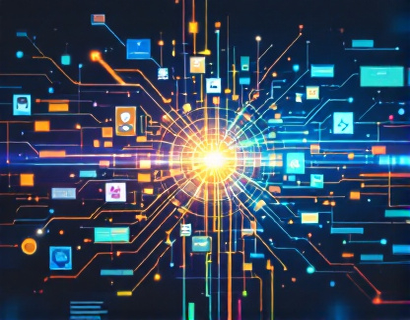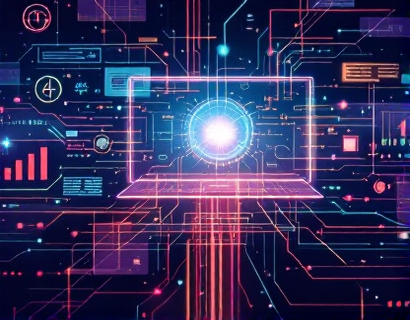ISO Emoji Variations: The Ultimate Guide to Exploring, Searching, and Copying Unique Symbols for Digital Communication
In the digital age, emojis have become an integral part of our communication, transcending language barriers and adding a layer of emotion and context to text-based conversations. The International Organization for Standardization (ISO) has played a pivotal role in standardizing these digital symbols, ensuring consistency and clarity across various platforms. This guide delves into the comprehensive range of ISO standard emojis, providing digital communication enthusiasts with the tools and knowledge to explore, search, and utilize these unique symbols effectively.
Understanding ISO Emoji Standards
The ISO standard for emojis, officially known as ISO 10646, is a comprehensive character set that includes a wide array of symbols, characters, and emojis. This standardization is crucial for ensuring that emojis appear consistently across different devices and platforms, reducing the confusion and misinterpretation that can arise from variations in design and interpretation. The ISO emoji standard covers not only the basic set of emojis we see daily but also extends to less common and specialized symbols, catering to diverse cultural, emotional, and contextual needs.
The Evolution of Emojis
The history of emojis dates back to the late 1990s when Japanese mobile operator NTT DoCoMo introduced the first set of emoticons to enhance the emotional expressiveness of text messages. These early emojis were limited and rudimentary, but they laid the foundation for the rich and varied emoji landscape we enjoy today. The ISO standardization process began in earnest in the early 2000s, with the goal of creating a universal set of symbols that could be recognized and used globally. This evolution has led to the diverse and nuanced emoji set that supports a wide range of expressions and concepts.
Exploring the ISO Emoji Set
The ISO emoji set is vast, encompassing thousands of symbols categorized into various groups. These categories include but are not limited to, facial expressions, food and drink, animals and nature, objects, symbols, and transport. Each category is designed to cover a broad spectrum of possibilities, ensuring that users can find the perfect emoji to convey their intended message. For instance, the facial expressions category includes not only the standard smiley face but also more specific emotions like surprised, disgusted, and blushing. This level of detail allows for more precise and nuanced communication.
Cultural and Contextual Emojis
One of the most significant aspects of the ISO emoji set is its inclusion of culturally diverse and context-specific symbols. These emojis help bridge cultural gaps and ensure that messages are understood across different backgrounds. For example, the ISO set includes emojis representing various types of skin tones, traditional clothing, and cultural artifacts. These symbols are essential for fostering inclusivity and respect in digital communication, allowing users to express their identity and heritage accurately.
Searching for ISO Emojis
With the vast number of ISO emojis available, finding the right symbol can sometimes be challenging. However, several resources and tools have been developed to make this process easier. Online platforms and databases dedicated to ISO emojis allow users to search by category, description, or even visual similarity. These tools often provide a detailed description of each emoji, including its Unicode code point, which is useful for technical users and developers.
For those who prefer a more visual approach, emoji dictionaries and reference guides are invaluable. These resources offer high-quality images of each emoji, along with explanations and usage examples. Some platforms even include filters and tags to help users narrow down their search based on specific criteria, such as emotion, object, or cultural significance.
Copying and Using ISO Emojis
Once you've found the perfect emoji, the next step is to copy and paste it into your digital communication. Most modern devices and applications have a built-in emoji keyboard or a dedicated emoji search function. To copy an ISO emoji, simply navigate to the emoji section, select the desired symbol, and use the copy function (usually controlled by right-clicking or long-pressing the emoji). On mobile devices, you can often find a "copy" option within the emoji menu.
When using ISO emojis in digital communication, it's important to consider the context and audience. While emojis can add depth and emotion to your messages, they can also be misinterpreted if not used appropriately. For instance, a thumbs-up emoji might be seen as positive in most cultures, but in some Middle Eastern countries, it has a different connotation. Always be mindful of the potential interpretations of the emojis you use to ensure clear and respectful communication.
Best Practices for Using ISO Emojis
To maximize the effectiveness of ISO emojis in your digital communication, follow these best practices:
- Know Your Audience: Consider the cultural and personal backgrounds of your recipients. What might be a positive symbol in one culture could be offensive in another.
- Be Contextual: Use emojis to enhance the context of your message, but avoid overusing them. A few well-placed emojis can convey a lot without overwhelming the text.
- Stay Updated: The ISO emoji set is continually evolving, with new symbols being added to reflect changing societal norms and trends. Regularly check for updates to stay current.
- Use Descriptive Search: When searching for specific emojis, use descriptive keywords or filters to narrow down your options. This can save time and help you find the exact symbol you need.
- Test and Adjust: Before sending a message with emojis, take a moment to review it. Ensure that the emojis are visible and make sense in the context of your message. Adjust as necessary to avoid misunderstandings.
Enhancing Digital Communication with ISO Emojis
The use of ISO emojis can significantly enhance the quality and effectiveness of digital communication. By providing a standardized and extensive set of symbols, ISO emojis help convey emotions, ideas, and concepts with precision and clarity. This is particularly valuable in professional settings, where clear and respectful communication is essential. For example, in business emails or project collaborations, using appropriate emojis can help soften the tone, add a touch of friendliness, and ensure that the message is received as intended.
In personal communications, ISO emojis can add a layer of emotional depth and expressiveness that text alone cannot provide. Whether you're sharing a moment of joy, sympathy, or excitement, the right emoji can make your message more impactful and relatable. For instance, using a heart emoji to express affection or a laughing face to indicate humor can greatly enhance the emotional resonance of your message.
Creative Uses of ISO Emojis
Beyond basic communication, ISO emojis offer a wealth of creative possibilities. Artists and designers can incorporate emojis into their work, using them as visual elements or even as part of larger compositions. Writers and content creators can use emojis to break up text, highlight key points, and engage readers in a more interactive way. In social media, emojis can be used to create eye-catching posts, stories, and threads, making your content stand out in a crowded feed.
For educators and trainers, ISO emojis can be a valuable tool in teaching and learning. They can be used to illustrate concepts, create visual aids, and make lessons more engaging. In customer service, emojis can help soften negative feedback and show empathy, making the interaction more positive and constructive.
Conclusion
The ISO standard for emojis has revolutionized digital communication, providing a universal language that transcends barriers and enhances the emotional and contextual richness of text-based interactions. By understanding and effectively using ISO emojis, digital communication enthusiasts can express themselves more precisely and creatively. Whether you're a professional, a creative, or simply someone who values clear and expressive communication, the ISO emoji set is an invaluable resource. Embrace these unique symbols to elevate your digital conversations and connect with others on a deeper level.









































